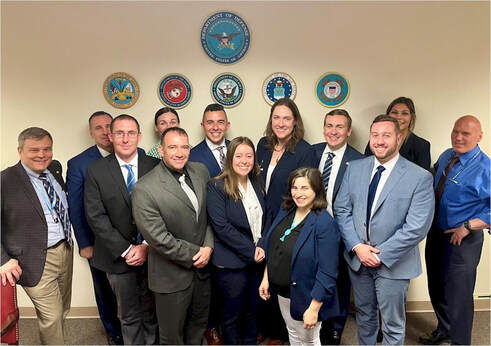Teaching.
At TAMU, I teach courses in international relations at the graduate level.
INTA 686: Russia in International Politics
This class examines the causes and consequences of Russian foreign policy since 1991. Students will leave with an introductory understanding of the history that led to the rise of President Vladimir Putin and shaped Russia’s current place in the international system, as well as how Russian foreign policy has evolved since Putin came to power. The class will outline three main analytical models for understanding Russian foreign policy: international systemic factors, domestic politics, as well as ideology and psychology. The class will also provide students with an overview of important topics in Russian foreign policy, such as the role of the security forces and the Russian economy, and Russia’s relationships with its neighbors, including Ukraine and China.
INTA 689: Proxy Wars
Great powers spend significant resources intervening in the wars of others. They frequently rely on indirect forms of intervention, supporting proxies with aid, arms, and military advisors. We will examine who engages in proxy war; why they choose proxy war over other options for intervention; the promise and peril of working with proxies; and how proxy war intersects with other concepts like external support, counterinsurgency, counterterrorism, and security force assistance in the 21st century. The class will then examine the ethical tradeoffs and consequences (both foreign and domestic) of supporting proxies, and the future of proxy war in an increasingly multipolar world. By the end of the semester, students will understand the principal causes and consequences of proxy war and will have formed a well-researched and considered opinion about its efficacy and appropriate use.
INTA 606: International Relations in Theory and Practice
This class examines international politics through the lens of academic research as well as through readings and projects that apply this research to contemporary issues, such as international security, climate change, global health, economic growth, and the rise of China. The premise of the class is that the theory and practice of international politics are interconnected: theory can inform policy, while contemporary policy issues should inform research and theory. After completing this class, students will have an introductory knowledge of the history of contemporary international order as well as competing academic theories about international conflict and cooperation. They will also learn how to apply these theories to answer contemporary policy questions.
Great powers spend significant resources intervening in the wars of others. They frequently rely on indirect forms of intervention, supporting proxies with aid, arms, and military advisors. We will examine who engages in proxy war; why they choose proxy war over other options for intervention; the promise and peril of working with proxies; and how proxy war intersects with other concepts like external support, counterinsurgency, counterterrorism, and security force assistance in the 21st century. The class will then examine the ethical tradeoffs and consequences (both foreign and domestic) of supporting proxies, and the future of proxy war in an increasingly multipolar world. By the end of the semester, students will understand the principal causes and consequences of proxy war and will have formed a well-researched and considered opinion about its efficacy and appropriate use.
INTA 606: International Relations in Theory and Practice
This class examines international politics through the lens of academic research as well as through readings and projects that apply this research to contemporary issues, such as international security, climate change, global health, economic growth, and the rise of China. The premise of the class is that the theory and practice of international politics are interconnected: theory can inform policy, while contemporary policy issues should inform research and theory. After completing this class, students will have an introductory knowledge of the history of contemporary international order as well as competing academic theories about international conflict and cooperation. They will also learn how to apply these theories to answer contemporary policy questions.
INTA 670: International Affairs Capstone - U.S. Security Cooperation in Iraq and Ukraine (2012-2022)
Capstone projects at the Bush School of Government and Public Service at Texas A&M University are integrative, team-based, applied research projects required of all students. Led by a faculty member on behalf of a client, these projects require students to think independently, frame and analyze issues, and apply their academic knowledge and skills. (see here for more details) For this capstone, students researched past cases of security cooperation to derive implications about how the United States can improve security cooperation to avoid its pitfalls and maximize its successes. The client was the Defense Security Cooperation University (DSCU) – the main knowledge and professional education center of the Defense Security Cooperation Agency (DSCA), which leads and manages engagement with foreign security forces and institutions for the Department of Defense (DoD). The team traveled to Washington D.C. to brief DSCU and DASD Michelle Strucke.
Capstone projects at the Bush School of Government and Public Service at Texas A&M University are integrative, team-based, applied research projects required of all students. Led by a faculty member on behalf of a client, these projects require students to think independently, frame and analyze issues, and apply their academic knowledge and skills. (see here for more details) For this capstone, students researched past cases of security cooperation to derive implications about how the United States can improve security cooperation to avoid its pitfalls and maximize its successes. The client was the Defense Security Cooperation University (DSCU) – the main knowledge and professional education center of the Defense Security Cooperation Agency (DSCA), which leads and manages engagement with foreign security forces and institutions for the Department of Defense (DoD). The team traveled to Washington D.C. to brief DSCU and DASD Michelle Strucke.
